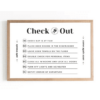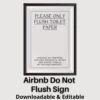
Introduction
Airbnb check-in times are a crucial aspect of the short-term rental experience for hosts and guests. As a host, setting the right check-in time can help you manage your property efficiently, while as a guest, understanding the process can ensure a smooth and stress-free stay. This article will provide a comprehensive guide to Airbnb check-in times, including how to set expectations, communicate with guests, and use technology to streamline the process.
Understanding Airbnb Check-In Time
Check-in time is the earliest time a guest can access the rental property on arrival.
Hosts set their preferred check-in times, considering factors such as cleaning schedules, guest needs, and local regulations.
Hosts need to strike a balance between offering flexibility and maintaining control over their property.

Setting Check-In Time: Tips for Hosts
As a host, you have the freedom to set your check-in time according to your preferences and needs. Here are some tips for determining the ideal check-in time for your Airbnb property:
- Consider cleaning schedules: Ensure you have enough time between check-outs and check-ins to clean and prepare the property. This may require coordinating with your cleaning service or adjusting your check-out time accordingly.
- Be realistic: Set a check-in time that you can consistently meet, avoiding overly ambitious or restrictive times that may cause stress or inconvenience for you and your guests.
- Account for guest needs: Consider the typical arrival times of your guests. For example, offer earlier check-in times to accommodate travellers if your property is near an airport or train station.
- Local regulations: Be aware of any local rules or restrictions that may affect check-in times, such as noise ordinances or building access rules.

Communicating Check-In Time: Tips for Hosts and Guests
Effective communication is vital for ensuring a smooth check-in process. Here are some tips for both hosts and guests:
- Include check-in time in your listing: As a host, be sure to clearly state your check-in time in your Airbnb listing so guests are aware of it before booking.
- Communicate before arrival: Reach out to your guests a few days before their arrival to confirm their check-in time and provide any necessary instructions.
- Be responsive: As a guest, keep your host informed of your arrival time and notify them promptly of any changes or delays.
- Discuss special requests: If you need to request an early or late check-in, communicate with your host in advance to see if they can accommodate your needs.
Streamlining Check-In with Technology
Technology can help simplify the check-in process for both hosts and guests. Here are some tools and features that can improve the check-in experience:
- Self-check-in options: Consider offering self-check-in options, such as electronic locks or lockboxes, to provide guests with a flexible and convenient way to access your property.
- Airbnb’s Check-in Guide: Use Airbnb’s Check-in Guide feature to provide guests with detailed instructions and photos, helping them navigate the check-in process seamlessly.
- Messaging apps: Utilize messaging apps, such as Airbnb’s in-app messaging or WhatsApp, to communicate with guests in real-time and address any questions or concerns during check-in.
- Smart home devices: Employ smart home devices, such as video doorbells or smart locks, to monitor and manage access to your property remotely.

Handling Late or Early Check-Ins
There may be times when guests arrive earlier or later than the scheduled check-in time. Here’s how hosts and guests can handle these situations:
- Plan for the unexpected: As a host, have a plan for early or late arrivals, such as providing instructions for self-check-in or designating a secure place to store luggage.
- Communicate changes: If you’re a guest and your arrival time changes, inform your host as soon as possible so they can make any necessary adjustments.
- Be flexible: Hosts should try to be as accommodating as possible within reason, while guests should understand that hosts may have other commitments or constraints that limit their flexibility.
- Offer alternative solutions: If a guest requests an early check-in and it’s not feasible, consider recommending nearby cafes, restaurants, or attractions where they can spend time until the property is ready.
- Charge additional fees (if necessary): As a host, you may charge an additional fee for late check-outs or early check-ins to cover any extra costs, such as additional cleaning or staff time. Be sure to communicate this policy clearly in your listing and with your guests.
Check-Out Time and Turnaround
In addition to managing check-in times, it’s essential to consider check-out times and the turnaround process:
- Set a reasonable check-out time: Similar to setting a check-in time, determine a time that provides enough time to clean and prepare the property for the next guest.
- Communicate check-out time: Clearly state the check-out time in your listing and remind guests of it during their stay.
- Offer flexible check-out options: Consider offering flexible check-out options, such as late check-out or luggage storage, to accommodate guests with varying departure schedules.
- Establish a cleaning routine: Develop an efficient cleaning routine or work closely with your cleaning service to ensure a seamless turnaround process between guests.
Conclusion
Managing Airbnb check-in times effectively is crucial for providing a positive experience for both hosts and guests.
By setting reasonable check-in times, communicating clearly, and using technology to streamline the process, hosts can create a welcoming environment for their guests.
Meanwhile, guests who stay informed and maintain open communication with their hosts can enjoy a hassle-free check-in experience.
Flexibility and understanding go a long way in ensuring a smooth check-in process.
Hosts and guests can make the most of their Airbnb stays by working together and following these guidelines.









